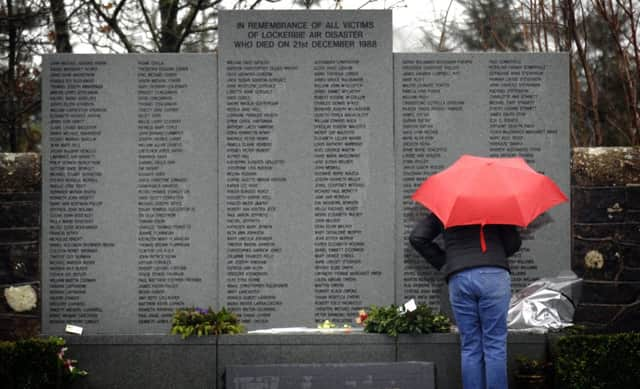Kenny MacAskill: Lockerbie conspiracy theories '˜absurd'


The atrocity is seared in the minds of every Scot old enough to remember. Likewise, its burned into the soul of Americans, as the first major terrorist attack on their citizens. All on board and 11 on the ground lost their lives on 21 December 1988.
As with Kennedy, conspiracy theories abound, but they’re absurd. Suggestions that the CIA orchestrated it are ludicrous and assertions of evidence planted at the scene defamatory of the officers who attended. Their courage, along with that of local residents, should be lauded not smeared.
Advertisement
Hide AdAdvertisement
Hide AdOnly the Libyan Megrahi has ever been convicted. Some question his guilt, but no-one argues that he acted alone. As a request for another appeal is lodged by his family, the only certainty is that it’ll neither be quick nor end the speculation. Even if an appeal is allowed, the timescale will be years not months.
The case is complex. It could only ever be thus given who was involved, how it was carried out and where the bomb detonated. That there was a trial at all is down to the remarkable investigation carried out by Scottish officers and colleagues from many forces in the UK and beyond.
The planning of the atrocity was global with several countries and organisations involved, and the debris was scattered from the Solway Firth to the Kielder Forest. As a consequence, the evidence could never be the clearest or most compelling.
Initial inquiries pointed to a Palestinian group but subsequent investigations showed Libya as being responsible. Negotiations brokered by the UN between the UK and US with the North African state agreed to a trial under Scottish law, but in the Netherlands.
However, an assurance of no regime change was given to Muammar Gaddafi and as a result, a get-out-of-jail card provided for him. Only Megrahi and his co-accused were surrendered, though many others were wanted by the prosecution, and only he was convicted.
The evidence was weak, understandably given the circumstances. That has been compounded by doubts over Tony Gauci’s evidence. He was a crucial witness who identified Megrahi as the man who bought clothes placed in the suitcase containing the bomb. His already debatable evidence has been damaged by information that the Americans paid him for it.
So there are doubts: but that doesn’t mean an appeal is certain to proceed or be successful. After all, Libya carried out the bombing. The evidence showed that, Gadaffi admitted it, and those who succeeded him accepted it. Moreover, whilst Megrahi wasn’t the bomber, he was a senior Libyan agent. Suggestions that he had no role in it are fanciful.
But whatever the outcome, as with JFK, the arguments will run and run.
Kenny MacAskill served as Scottish Justice Secretary from 2007 to 2014. He ordered the release of Abdelbaset al-Megrahi on compassionate grounds in 2009
